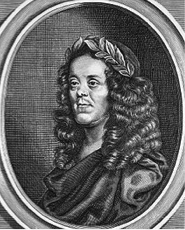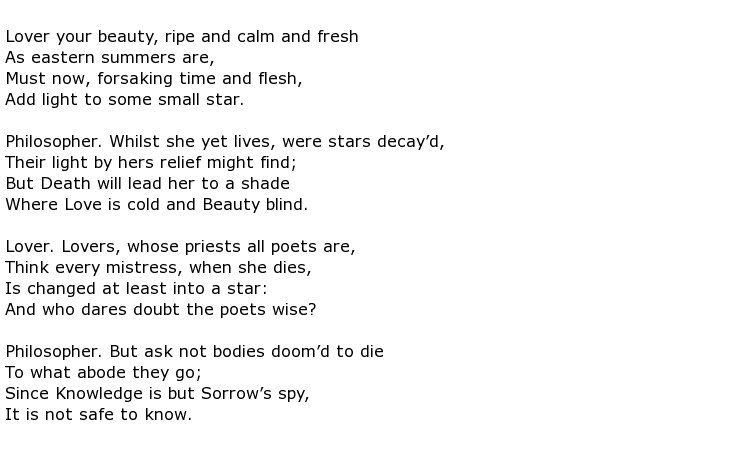 William Davenant, whose name is sometimes spelled D’Avenant, was a 17th century English poet and playwright. He lived at a turbulent time in English history with his writing career spanning the Civil War, the Interregnum period between the execution of Charles I and the Restoration, and beyond. He was a leading figure in the English Renaissance theatre and was also a favoured courtier of the king, who appointed him to a number of official positions abroad.
William Davenant, whose name is sometimes spelled D’Avenant, was a 17th century English poet and playwright. He lived at a turbulent time in English history with his writing career spanning the Civil War, the Interregnum period between the execution of Charles I and the Restoration, and beyond. He was a leading figure in the English Renaissance theatre and was also a favoured courtier of the king, who appointed him to a number of official positions abroad.
He was born towards the end of February 1606 in Oxford and was the son of John Davenant who kept the Crown Tavern while also holding the office of Mayor of Oxford. Some stories though have William down as the son of William Shakespeare. It is known that the Bard frequently stayed at the tavern when journeying between his home in Stratford and London. Davenant himself often perpetuated this story about his alleged parentage although it could be interpreted that what he really meant was that he considered himself the “literary son” of Shakespeare and that his own writing was often inspired by him. Indeed, at the age of 12, Davenant wrote an ode called In Remembrance of Master Shakespeare.
Educated at Lincoln College, Oxford, he left without completing his degree course and took up a position in London as page to the Duchess of Richmond. Unfortunately, at the age of 24, he contracted syphilis and, as a result, his nose was badly disfigured. This condition was seized upon by his enemies who made much fun of his discomfort. Despite his troubles he continued to impress with his poetry and, in 1638, he succeeded Ben Jonson as Poet Laureate.
When the Civil War broke out, Davenant sided with the Royalists but, just before that, he was found guilty of high treason by Parliament. He escaped death and imprisonment by travelling to France but he soon returned home to fight for his King and, following his efforts at the siege of Parliamentarian-held Gloucester, he was knighted. Perhaps he did not have the stomach for too much more fighting and, shortly after the Royalists were routed at the Battle of Naseby, he headed for Paris and soon began work on his epic poem Gondibert. He was still in favour with the exiled king Charles II who appointed him to a post in the new American colony of Virginia.
His troubles were never far behind though and he was captured at sea and, as an enemy of Parliament, he found himself back in England and incarcerated in the Tower of London. He remained there for the whole of the year 1651 where he was able to add to the ongoing project Gondibert. He was released in 1652 but not pardoned for another two years and he found himself setting up a secret theatre at his home where he, and other writers considered “seditious”, could present and perform their work away from censorious eyes.
Davenant often wrote his poetry in a romantic, simple style and a good example is reproduced here, a poem calledTo A Mistress Dying:

The death of Oliver Cromwell brought great change to the country and the monarchy was restored, and yet Davenant found himself in prison yet again following an uprising in Cheshire. He sought temporary exile once more in France before returning to London when the king was back on the throne. Now that Puritan rule was banished, the theatres reopened and men like Davenant and Thomas Killigrew revelled in their new-found freedom to produce and perform theatrical works from around 1660 onwards.
Sir William Davenant died on the 7th April 1668 at the age of 62 and is buried in Poets’ Corner, Westminster Abbey. He lived to see his final play, The Man’s the Master, performed for the first time in London.

